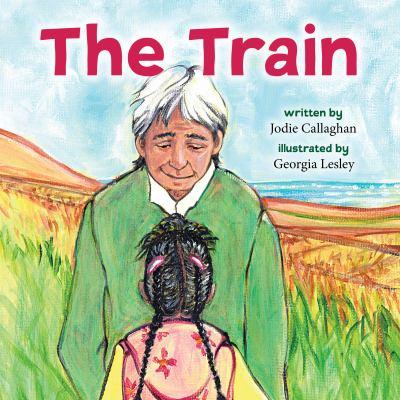
The train
A fiction picture book about residential schools. Author Jodie Callaghan worked as a journalist at the time of the Canadian government's apology for the residential school system. She took inspiration for this book from her conversations with survivors--including her own grandmother's experience at Indian day school, and memories shared with her by a man she interviewed by the train tracks that transported children to residential school in Shubenacadie, Nova Scotia. Jodie's story for The Train was first recognized as the winner of the Mi'gmaq Writer's Award in 2009, a contest organized by the Mi'gmawei Mawiomi Secretariat to encourage and develop Mi'gmaq storytellers.
Available Copies by Location
| Location | |
|---|---|
| Victoria | Available |
Browse Related Items
- ISBN: 9781772601299
-
Physical Description
print
1 volume (unpaged) : color illustrations ; 23 x 23 cm - Publisher [Place of publication not identified] : [publisher not identified], 2020.
Content descriptions
| General Note: | NFPL Indigenous Collection. |
Additional Information

Kirkus Review
The Train
Kirkus Reviews
Copyright (c) Kirkus Reviews, used with permission.
In present-day Nova Scotia, a young Mi'gmaq girl hears an important story from her uncle.Now that she is old enough, Ashley enjoys walking home alone after school, taking time to look for pretty stones and other treasures. One afternoon, Ashley recognizes her uncle where the train station used to be and runs to greet him. As they stand near the overgrown, weedy tracks, he tells her he is waiting for the train. Ashley can't help but giggle, as she knows no train has traveled here for many years. But Uncle's eyes tear up, so she asks him why he is so sad. Uncle then tells her the story of when his mother, Giju', sent him and his siblings to meet the train as they often did when it arrived with rations from off the reserve. However, this time Giju' made sure they took their winter coats and cried because she knew what they didn't: that their lives would be changed forever. The children were herded onto the train and taken to a residential school, where their identities were stripped away. Even now, decades later, Uncle goes to the track to wait "for what we lost that day to come back to us." Through Uncle's story, Callaghan (Mi'gmaq) presents a harsh topic in a gentle way. Lesley's soft color palette and expressive characters blend beautifully with the story without lifting its heaviness. Keeps a critical memory alive. (glossary, note) (Picture book. 4-8) Copyright Kirkus Reviews, used with permission.

BookList Review
The Train
Booklist
From Booklist, Copyright (c) American Library Association. Used with permission.
On her way home from school, Ashley encounters her great-uncle walking near an abandoned railroad track on their reserve. She questions him about this particular spot, and he recounts a tale of his childhood when government officials put him and his siblings onto a train traveling to an Indian residential school. Now he waits, both to remember what happened and to seek the return of all that was lost that day. Mi'gmaq storyteller Callaghan recounts this sad episode from Indigenous history using simple, understated text that conveys the lingering pain of this injustice. Lesley's paintings reflect a mostly sunny palette for the contemporary scenes, with darker blues highlighting scenes of the past. Her haircutting illustration (depicting a ritual intended to remove the Indian from the child ) and one of a child feigning sleep while a nun's shadow is reflected against his cot are particularly evocative. Appended with a glossary of Mi'gmaq words and a short note about residential schools, this is a good addition to the growing canon on this topic.--Kay Weisman Copyright 2020 Booklist


